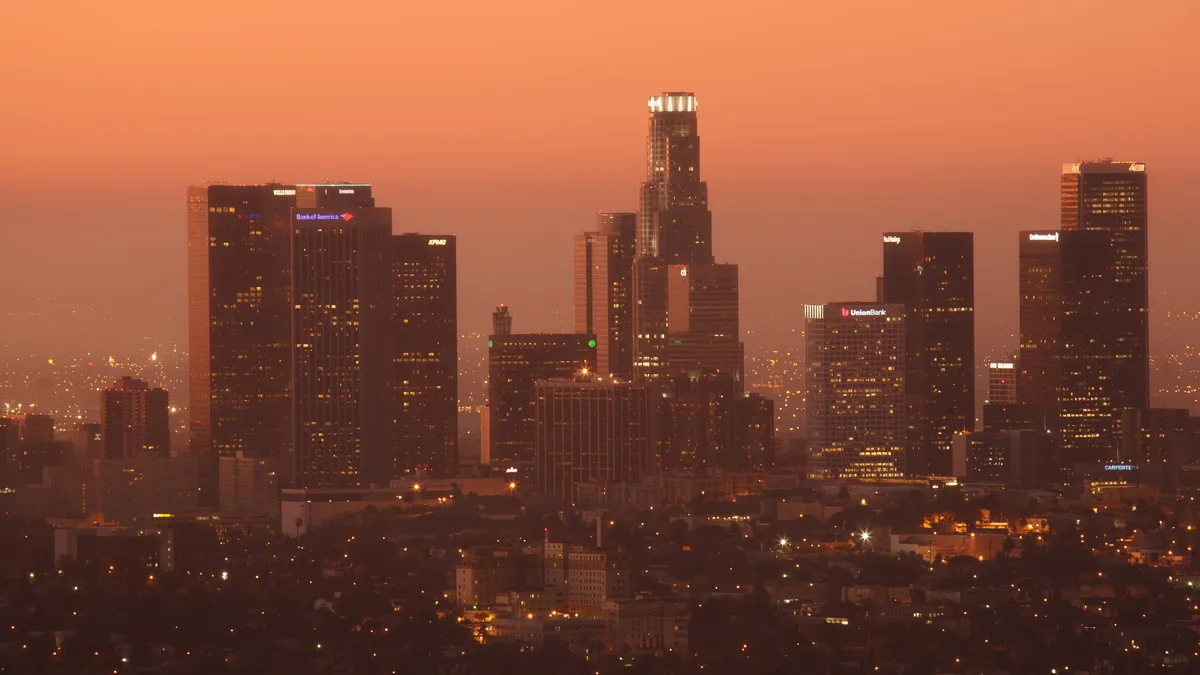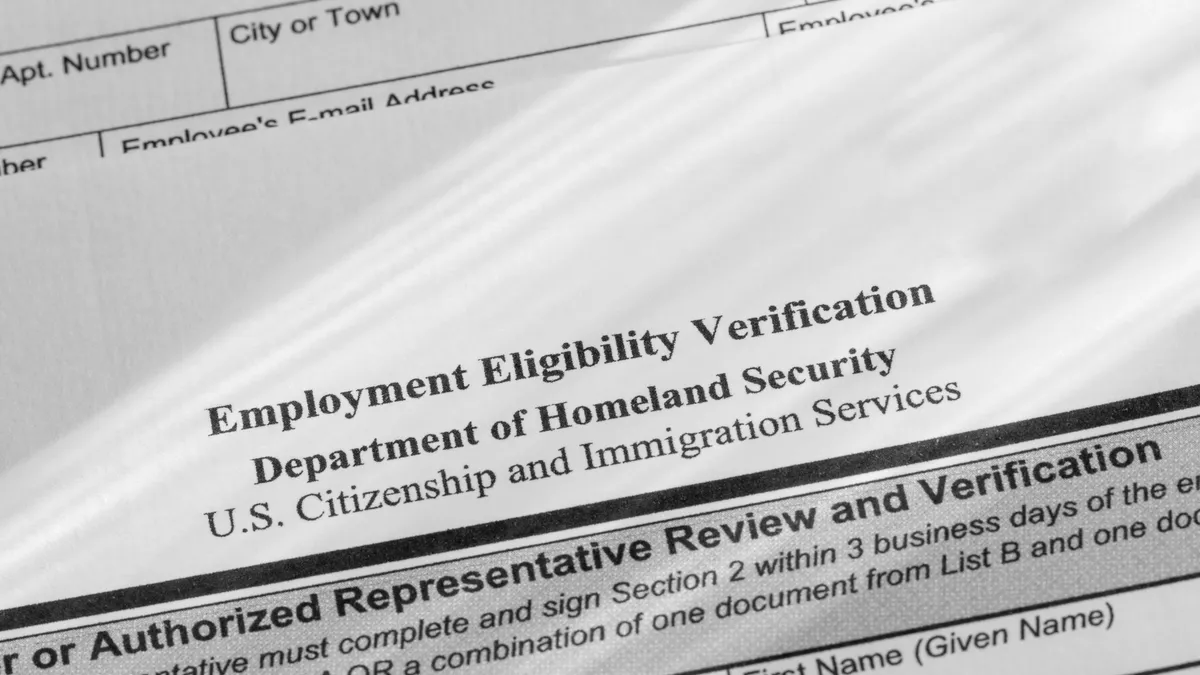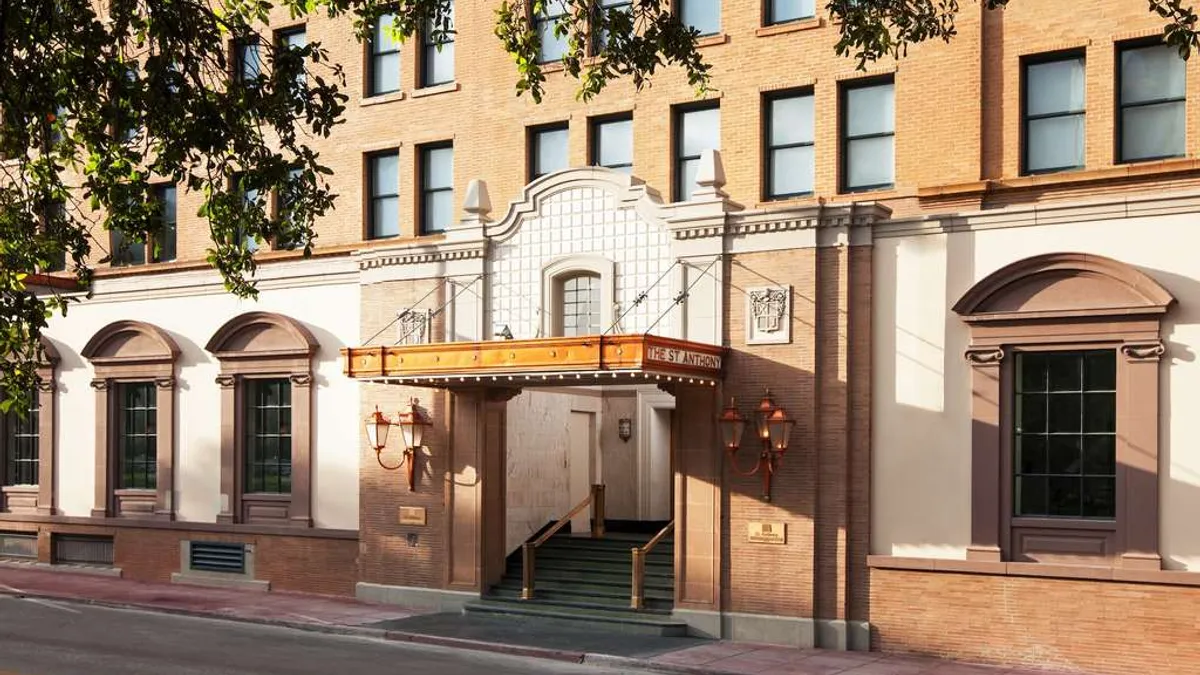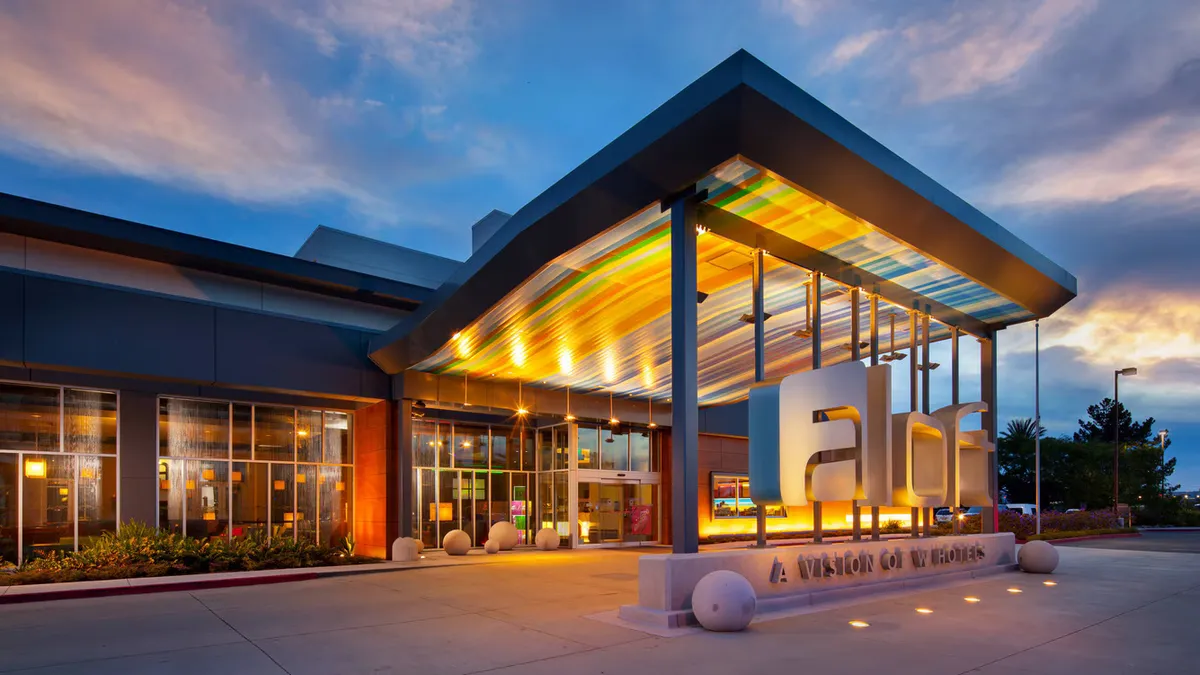January wildfires in Los Angeles’ Palisades and Eaton neighborhoods had an immediate impact on the city’s hospitality industry.
Hotels played a key role in the recovery efforts, housing evacuees and first responders. Meanwhile, LA tourism was challenged, with business and leisure travelers canceling hotel reservations in the wake of the devastating fires, according to the American Hotel & Lodging Association.
The slow return of visitors could significantly impact LA hotels, as seen on Hawaii’s Maui following the deadly fires in August 2023. Upended tourism, though, is not the only challenge LA hotel owners presently face.
The January wildfires put a spotlight on several unique issues LA hoteliers are up against, including the rising cost of labor amid a high-inflation environment and increasing insurance expenses as natural disasters become more prevalent.
Local hospitality leaders from the Hotel Association of Los Angeles, the California Hotel & Lodging Association and CBRE, as well as AHLA CEO Rosanna Maietta, shared with Hotel Dive what’s at stake for LA’s hospitality industry if these growing threats persist.
LA tourism challenges
LA’s hotel, travel and tourism industries, which employ more than 540,000 workers and generate billions of dollars, have been severely impacted by the January wildfires, according to AHLA.
The disruption to LA’s tourism industry — a “lifeline” for the city, per Los Angeles Tourism & Convention Board CEO Adam Burke — came at an inopportune time. As of January, LA still had “some make up to do” to recoup tourism levels that were hit hard during the COVID-19 pandemic, AHLA’s Maietta told Hotel Dive last month.
“Even before this disaster, Los Angeles was behind every major city in post-pandemic recovery — like the bottom of the list in terms of getting back to pre-COVID tourism levels,” Maietta said.
In 2023, the most recent annual data collected by the Los Angeles Tourism & Convention Board, 49.1 million people visited LA, representing 97% recovery to 2019 levels. While domestic visitation was fully recovered in the year, international tourism was only 79% recovered to pre-pandemic levels, according to the bureau.
If a slow return of visitors continues as a result of the January wildfires, the long-term impacts on LA’s hotel industry could be devastating, jeopardizing tens of thousands of jobs and risking the city’s ability to host significant events such as national conferences, the 2027 Super Bowl and the 2028 Olympics, the Hotel Association of Los Angeles detailed in a Jan. 24 letter to the Los Angeles City Council reviewed by Hotel Dive.
The impact of the fires on Maui provides a look at how the January fires in LA could “destabilize our economy,” HALA wrote. Tourism levels significantly dropped in Maui in the months following the fire, causing hotel occupancy rates to decrease, according to HALA. This subsequently led to revenue loss across the region’s hospitality industry and impacted local employment, the organization noted.
LA’s situation isn’t exactly the same as Maui’s, though. While the January fires resulted in reduced hours for LA workers across industries, average hours for leisure and hospitality workers rose during the weeks of Jan. 5, 12 and 19, according to ADP payroll data.
Still, hoteliers’ ability to continue “to survive and employ the number of people that they do is at risk,” Maietta told Hotel Dive, noting that owners in the city are currently experiencing some “very significant financial burdens and challenges.”
Labor woes from climbing costs
Long-term, hotel operators are concerned about rising labor costs, Maietta noted. And it's not just LA hoteliers who are worried; labor costs are a statewide issue, CHLA CEO Lynn Mohrfeld told Hotel Dive.
“Ever since the pandemic, the costs are rising faster than the average revenues are increasing,” Mohrfeld said, noting that roughly 50% of a hotel’s costs are generally labor costs, which are “getting more expensive.”
“Labor costs are one of the things that hotel operators and owners are really trying to manage, [while] being as true to our employees as we possibly can, but realizing the business realities of it too,” Mohrfeld said.
Nationwide, hotels paid a record $125.79 billion in wages, salaries and other compensation in 2024, according to AHLA’s 2025 State of the Industry Report. Despite paying more, hotel owners faced labor woes throughout the year as workers demanded additional pay to keep up with the rising cost of living.
Thousands of LA hotel workers walked off the job in July 2023, demanding higher wages, and union workers elsewhere in California went on strike in 2024 for similar reasons.
In Los Angeles, the cost of living is 8% higher than California’s state average and 50% higher than the national average, per RentCafe data.
The current economic climate has created a “perfect storm,” where both local hotel owners and workers are unsatisfied, Mohrfeld said.
“The cost of eggs and gasoline is not going down, so [workers’] costs have gone up, and the hotels have less visitors, and their costs are going up,” he explained.
Premiums at their peak
LA hotel owners also worry about the rising cost of insurance, multiple sources told Hotel Dive. This cost is climbing as natural disasters like wildfires become more prevalent.
“Disaster issues really do impact our hotelier community in a profound way, especially because it is getting significantly harder to get insurance,” Maietta told Hotel Dive.
Natural disasters, “whether it’s fires here in California or flooding and hurricanes in the Southeast,” are a huge driver of insurance cost increases across the hotel industry, Brandon Feighner, senior director and practice leader in the West Division for the CBRE Hotels Valuation & Advisory platform, told Hotel Dive.
In 2023, hotel insurance expenses in California increased 28.1% year over year, a higher growth rate than the national average of 19%, according to CBRE data obtained by Hotel Dive. In 2024, though, hotel insurance expenses in California increased 11.8%, lagging behind the national average growth rate of 25.7%.
"Disaster issues really do impact our hotelier community in a profound way, especially because it is getting significantly harder to get insurance."

Rosanna Maietta
American Hotel & Lodging Association CEO
In addition to natural disasters, supply chain interruptions and a lack of available labor following the pandemic have driven up insurance costs, according to a CBRE report from 2024. These challenges have increased the cost of construction-related goods and services, leading to increased building valuation and, in turn, increased insurance premiums, per the report.
On their own, higher insurance costs aren’t dissuading hoteliers from expanding in California, though, Mohrfeld noted.
Feighner echoed a similar sentiment: “I wouldn’t say insurance specifically is a reason to not develop or invest in hotels in California, because it’s going up nationwide. There may be other reasons [like] labor is more expensive in primary cities in California. But then again, in some of those markets the average daily rates you can charge are significantly more, so it’s always a balancing act.
“Insurance costs, for the most part, are what they are, and hotels need to be insured for all sorts of reasons,” he added. “It [comes down to], where else can you hold that profit margin?”
Calling on City Council
To combat financial burdens in the wake of the January wildfires, AHLA and HALA believe the LA City Council can help.
“Many hoteliers across the city now face their own financial uncertainties due to the fires and are concerned about their ability to continue operating unless swift action at the City Council is taken,” AHLA wrote in a Feb. 12 letter to the City Council reviewed by Hotel Dive.
In their respective letters, HALA and AHLA urged the City Council to suspend city-level tenancy requirements and the Hotel Worker Protection Ordinance to allow hoteliers to provide long-term stays for those displaced by the fires during the recovery period.
“These rules are not suitable for long-term stays and staffing hotels with reduced occupancy rates,” HALA wrote. “Such rules make it challenging for hotels to accept FEMA vouchers and government recovery reservations, particularly mid-sized hotels closest to fire-impacted areas, as they are less able to accommodate reservations significantly below market rate coupled with the additional labor costs associated with meeting HWPA (Hotel Worker Protection Ordinance) mandates.”
Earlier this month, California Gov. Gavin Newsom extended the suspension of the city-level laws that classify long-term occupants of short-term lodging as tenants in Los Angeles and Ventura Counties.
The organizations also requested a one-year hold on further consideration of amendments to the Hotel Worker Minimum Wage Ordinance, which is slated to incrementally increase the minimum wage for employees of hotels with more than 60 rooms in LA starting July 1.
“Many Los Angeles submarkets have been severely impacted by the fires, and with the net effect of evacuation closures, reservation cancellations, and the uncertainty of returning business in the months ahead, many properties are unsure of their future operational viability,” AHLA wrote. “The current economic landscape makes it increasingly difficult for hotels to absorb additional costs without risking further job losses and potential closures.”
The current economic environment is also making it increasingly difficult for hotel workers — “the backbone of [LA’s] thriving tourism industry,” per local union leader Kurt Petersen — to live comfortably.
In a December statement published by workers union Unite Here Local 11 following the City Council’s approval of the Hotel Worker Minimum Wage Ordinance, Petersen said the move was a “critical first step to ensure that mega-events like the Olympics improve the lives of working Angelenos by providing affordable housing and good jobs, rather than simply enriching tourism CEO’s.”



















